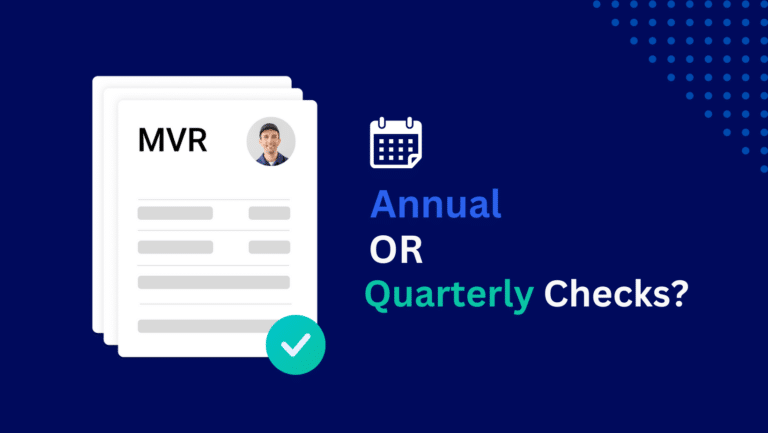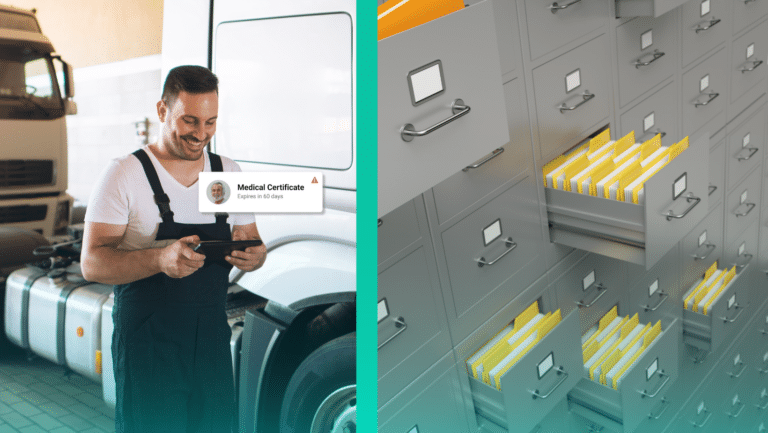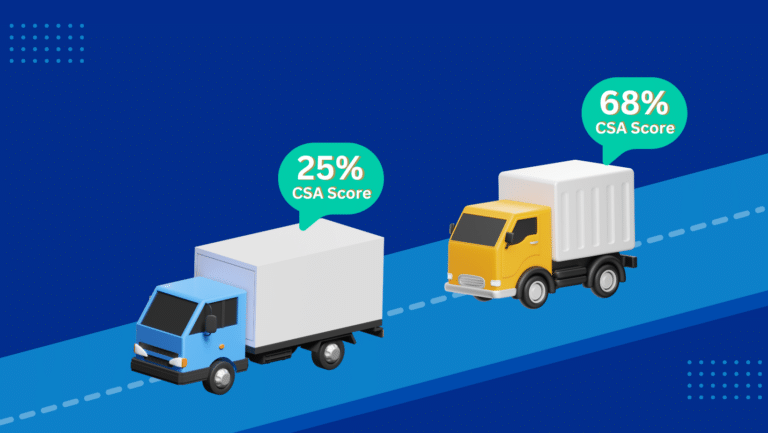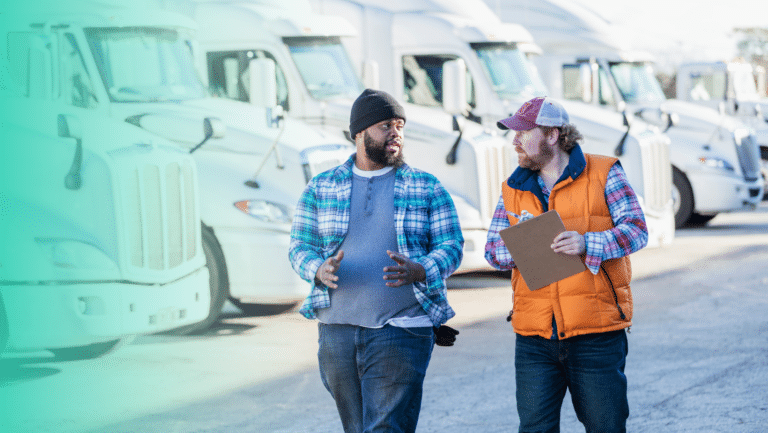DOT Driver Background Check Guide – 2023
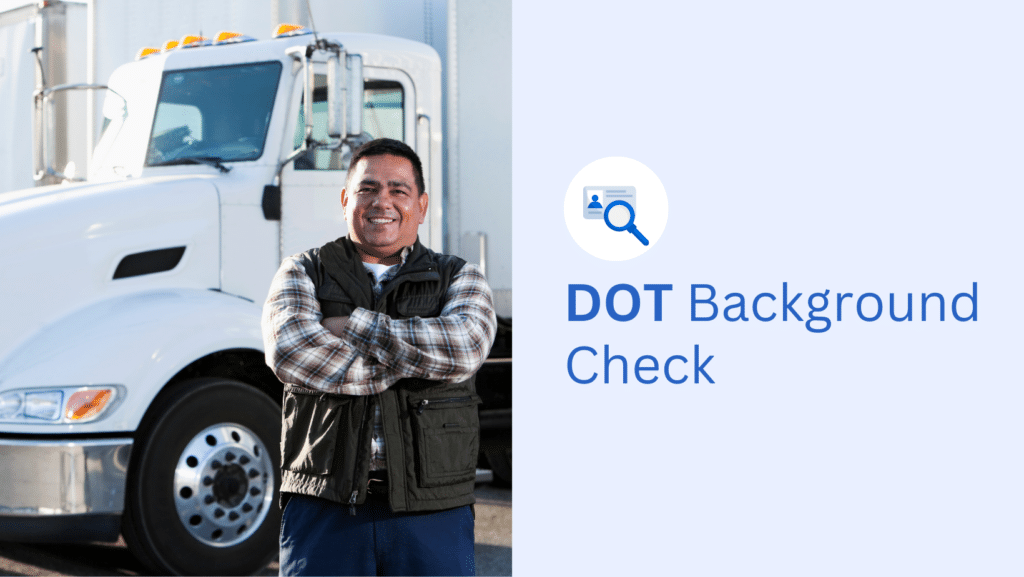
Businesses regulated by the Department of Transportation must conduct DOT background checks before hiring commercial drivers. DOT Background checks are designed to help reduce deaths and vehicle crashes by enforcing safety standards on the roads. In summary, being in compliance reduces the likelihood of having unqualified drivers operating illegally on the roadways.
Truck accidents frequency and claims on the rise
The trucking industry continues to struggle with a shortage of truck drivers. This is an ongoing challenge now for more than a decade. The need for filling a position quickly sometimes makes carriers lower their safety standards and procedures. As a consequence of taking shortcuts in the hiring process, truck accidents increased by over 40% from 2009-2019.
Because of high accident rates, the industry is highly criticized and penalized by rising insurance costs, lawsuits, and bankruptcy. Massive settlements known as “Nuclear Verdicts” are the new norm against trucking companies involved in accidents. These large settlements have increased both in amount and frequency.
“A new report from Marathon Strategies found that the median nuclear verdict jumped from $21.5 million in 2020 to $41.1 million in 2022 – a 95% increase – while the number of verdicts doubled. The largest verdicts have also been growing, from $1.1 billion in 2020 to $7.3 billion in 2022. Juries ordered twenty verdicts for over $100 million last year, including four for over $1 billion.”
In most nuclear verdict cases, plaintiff attorneys are able to prove the carrier’s poor hiring standards, violations of federal regulations, and deficient safety procedures. So, what can companies do to reduce their risk of accidents? Well, it all starts with the hiring process. Let’s dig in and start with the basics.
What are the DOT background check requirements?
Performing pre-employment background checks help organizations identify drivers with the right skills, and comply with FMCSA regulations. Furthermore, it helps detect and screen out drivers with histories of reckless driving.
Before hiring new drivers, make sure your candidates pass these basic DOT driver screening checks.
DOT Background checks
Motor Vehicle Record (MVR) check: As part of the DOT background check, carriers must review the driver’s Motor Vehicle Record from each state where a driver held a driver’s license or permit over the last 3 years. MVRs provide a complete history of a driver’s driving habits, past violations, license status, medical certificate, and accidents. Motor Vehicle Record checks are an important background screening tool to help make informed hiring decisions on who should be driving.
Alcohol and drug history: The FMCSA requires that employers look at the previous three years of alcohol or drug history in the Clearinghouse Report. This includes whether the driver has ever tested positive on a drug or alcohol test, refused to test, or completed or failed a substance abuse rehabilitation program. Additionally, an employer must receive a negative pre-employment drug test before allowing a CDL driver to operate a CMV.
DOT Physical Exam: Driving a 5-ton truck is not like driving a passenger vehicle. Stopping time and distance, blind spots, and limited maneuverability, require drivers to have exceptional skills and performance. Federal law requires drivers with a CDL to pass a special DOT medical exam. The exam proves drivers are healthy enough to safely perform and operate a CMV. The doctor also looks for preexisting medical conditions that may impair their ability to be safe on the road.
Previous employment verification: Carriers must verify employment history of the last three years. This information is obtained by contacting previous employers. This report should follow DOT guidelines and include information on dates of employment, alcohol or drug violations, refusal to test, accident history, reason the employee left the company, etc. Verifying previous employment history informs whether an applicant was truthful about their experience. It also reveals whether the driver was responsible and respectful of the organization’s safety policies.
Going beyond the DOT requirements
Reducing the risk of accidents and liabilities requires taking additional steps beyond what is required under DOT and FMCSA regulations. Other safety initiatives carriers could implement as part of their safety program include:
Criminal background checks: Look for any felony and misdemeanor, criminal convictions, alcohol, and drug substance abuse, and registered sex offenders, among others.
PSP Report: In addition to the MVR, the PSP report provides extra driver data at the moment of hiring. The PSP report informs on the last 5 years of accidents and the last 3 years of roadside inspection. Moreover, the report includes safety details about crashes such as injuries, fatalities, and towaways.
CDLIS: The CDLIS report provides employers with a complete commercial license history of a driver. This report searches for any prior CDL license, current CDL, and up to three prior licenses held by the driver. The information provided helps carriers access out-of-state MVRs and ensure drivers are not holding multiple CDLs.
MVR Monitoring: MVR Monitoring technology allows organizations to proactively check driving records from new hire time throughout employment. The system alerts employers when new violations, DUIs, and license suspensions occur. MVR Monitoring technology facilitates the driver record review by automatically scoring driving records and flagging risky drivers.
Making sure to not hire drivers with poor driving records, substance abuse, and other disqualifying conditions can help organizations avoid serious penalties and expensive litigations for negligent hiring. At Embark Safety, our driver safety and MVR solutions help organizations keep safe and qualified drivers on the road. MVR Monitoring technology works as a single platform to manage driving records, order PSP and CDLIS reports, assign fleet training, manage DF files, and more.
Interested in learning how to reduce driver risk? Schedule a demo
*We are not lawyers. Consult with your legal counsel to ensure your processes and procedures meet/ or exceed safety standards and compliance regulations. Please read our legal disclaimer.

